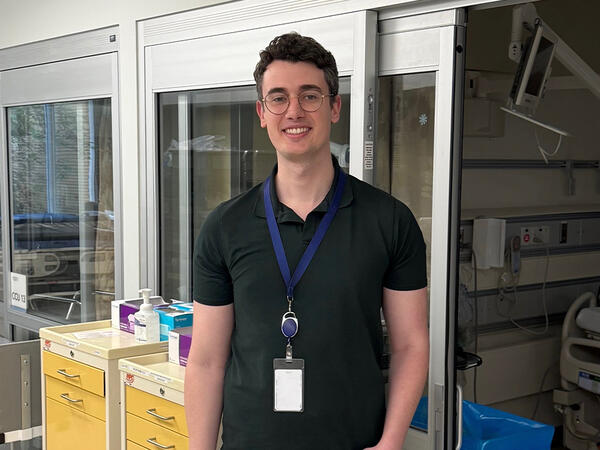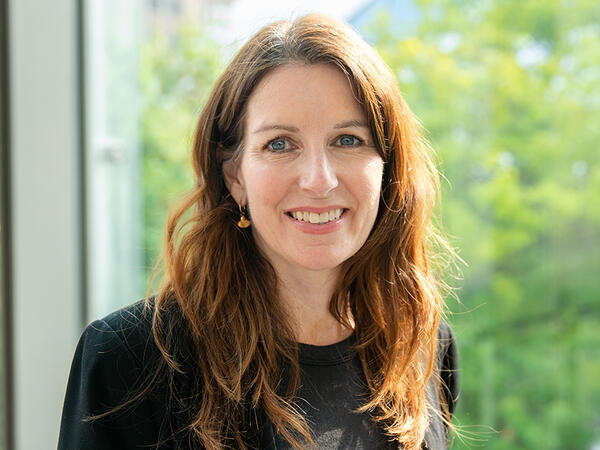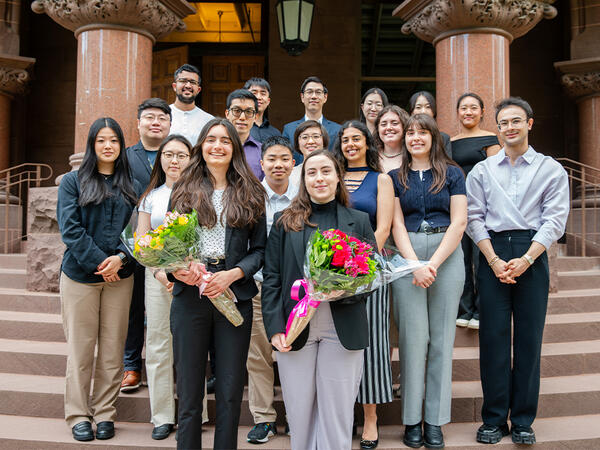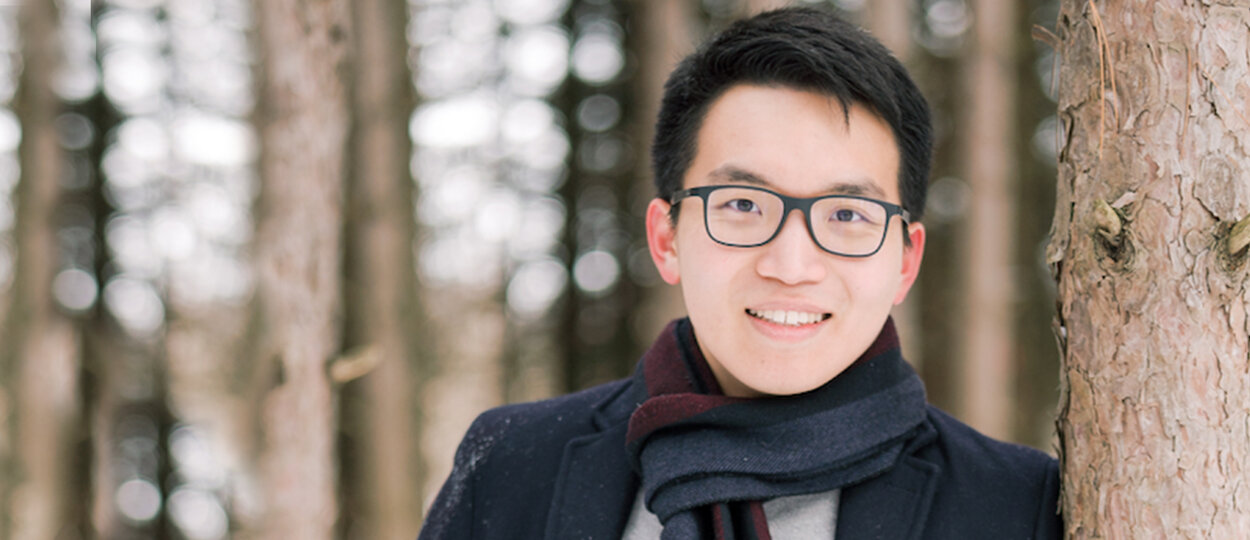What is your academic background and why is this area of research important?
As an international student from China, pursuing my graduate degree at the University of Toronto has been a challenging yet rewarding experience. Having completed my undergraduate degree in Pharmaceutical Chemistry from the same institution, I have a strong foundation in Biomedical Science. However, I overcame language and cultural barriers to adapt to the new environment. Despite these challenges, my passion for understanding the mechanisms of chronic pain and developing new approaches to studying it has been a driving force behind my academic pursuits. With a better understanding of the pathology of chronic pain, we can develop more effective treatments to improve the quality of life for those who suffer from it. Being part of a community of great researchers working towards a greater understanding of this complex and important problem is exciting. Through my research, I want to make a meaningful contribution to the field of pain and help those in need.
What led you to your current Supervisor’s lab?
My interest in studying chronic pain and its underlying mechanisms began during my undergraduate project at Dr. Bonin's lab. We developed a new tool and identified a new spontaneous behavior to study pain and welfare in mice. I found our research topic innovative, leading me to pursue a Ph.D. in the same lab. I was fortunate to join the lab of Professor Bonin, whose research program focuses on exploring the possibility of targeting sensory plasticity and erasing 'chronic pain memory.' Drawing on the skills and findings from my previous project and expanding my skill set during my time in his lab. I have contributed to the lab's ongoing efforts to develop novel approaches to treating chronic pain. Working with Professor Bonin and the other lab members has been an exciting and rewarding experience. I am grateful to be part of such an innovative and dedicated research team.
What are some of the challenges you had to overcome within your research?
During my research journey, I had to overcome many challenges that tested my patience and adaptability. Sometimes, my experiments didn't work out the way I hoped, which was super frustrating. It was hard to deal with these setbacks, but I saw them as learning opportunities and kept moving forward.
During my Ph.D., I also faced many unexpected challenges, including the global pandemic. I still remember how stressful it was to adjust to new work protocols and balance everything while trying to stay safe and healthy. On top of that, becoming a new father during the pandemic was not easy, but I tried my best to be flexible, stay positive, and maintain a good work-life balance. It was sometimes tough to juggle the demands of experiments with family responsibilities, but I did my best to make it work. I learned to prioritize my time, so I could be there for my family and still get my work done.
Looking back, all these challenges made me a much stronger and more adaptable researcher. I am grateful for the support of my lab and my family, who helped me through the tough times.
How do you see your current research playing a role in your career?
My current research studying chronic pain and its underlying mechanisms has equipped me with a versatile set of skills that will serve me well in a future career in research. Through my work, I have gained essential skills in experimental design, data analysis, paper and grant writing, as well as scientific communication, which I have further developed through presenting my work at conferences and engaging with the broader scientific community. These skills are transferable to a range of other research areas beyond just chronic pain. Even if my future research focus shifts, the skills I've acquired will be valuable and applicable. I'm excited to continue building on this foundation and exploring the many opportunities that lie ahead in the field of neuroscience research.
What do you like to do when you are not working on research?
I enjoy cooking for my family when I'm not in the lab. It has always been a passion of mine, and I find it to be a calming and creative outlet. I also love to swim - a quick dip in the pool helps reset my mind. Most importantly, I cherish spending time with my family, and one of our favorite activities is taking nature walks together. It's a chance for us to disconnect from technology and appreciate the beauty of the natural world.
How have you found life in Toronto?
As an international student, moving to Toronto was a big transition. Toronto is now my home, where I started my own family. I have made lifelong friends, explored new cultures, and had countless opportunities to grow both personally and professionally. Toronto will always hold a special place in my heart, and I'm grateful for the many memories I've made here.
More News
Image

Pharmacy alum’s research shows how full-scope practice improves cancer care
Honoured with a national award, Adrian de Boer says his residency experience was a powerful reminder that he's making a meaningful change to the pharmacy profession.
Read More
Image

Pharmacy alum passionate about helping community pharmacists practice to full scope
As a pharmacy leader at Rexall, Heidi Wittke uses frontline experience to lead initiatives that improve patient care
Read More
Image

Bridging Research and Industry: GRIP 2025 highlights innovation and real-world impact
Over 200 attendees from academia, healthcare, and industry gathered last week for the 2025 GRIP symposium, celebrating the depth and diversity of graduate student research.
Read More
